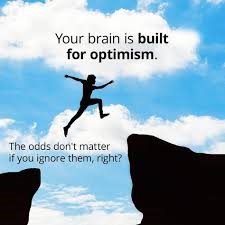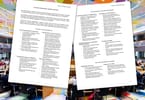The hotel, travel and tourism industries have been hammered by Covid-19. As strategic partners in the tourism paradigm, hotel executives have seen investments in this sector decline by 59 percent in the first half of 2020. McKinsey research suggests that the all industry segments will not see a recovery to pre-COVID-19 levels until 2023 or later.
In 2019, tourism counted for approximately 10 percent of global GDP and was valued at almost $9 trillion. It is expected that international tourist arrivals will experience a 60-80 percent decline in 2020 and tourism spending is unlikely to return to pre-crisis levels into 2024 (mckinsey.com).
Because the industry is fragmented, rebooting tourism-related businesses and developing a sustainable model that is safe, meets tourists’ expectations and is economically feasible will require public and private sector leadership, management cooperation and coordination that is unprecedented.
Crazy Quilt of New Rules
Consumers and industry partners are in a quandary because of the irrational restrictions elected officials have placed on this economic sector. While most were willing to give the WHO (World Health Organization) and government leaders the benefit of the doubt at the beginning of the novel coronavirus, allowing them time to get themselves and policies in order. However, it is now over 6 months into the pandemic and the arbitrary and capricious decisions determining the activities, events and establishments that are permitted to or not permitted to open has created havoc in previously successful and lucrative sectors of the global economy.
In Michigan boating is permitted, but you might get arrested if you use a motor. In California, selling marijuana is ok, but giving a haircut is a no-no. One weekend in Miami the beaches are open, the next they are closed. Bars in New York are opened one weekend, and then closed. Physical therapy centers in New York rebooted their practice, but gyms remained closed. Public swimming pools were open, but private pools could not open. Hawaii beaches are closed, but condo pools are open. In New York (as of June 2020), Native American casinos in western New York and Central New York opened but racetracks with video lottery terminals and four upstate casinos remained closed. Movie theatres are still closed and for playgrounds and pools, it is up to municipalities as to whether they open or remain closed. Countries are supposedly in a health crisis and yet nurses are being laid off, doctors are closing their practices and hospitals are in so much debt they may have to stop providing services.
The Mad Hatter as Leader

Like Alice in Wonderland, business executives are unable to determine the rules because they change so quickly and without review, consideration, dialogue or justification. Currently, executive orders have replaced the rationale process of making/revoking laws and rules; truth is whatever the king (president, governor, mayor) say it is. The rule of law that has governed the United States (and many other countries) has disappeared as the forests in California and Oregon are destroyed by fire and flame, because some leaders do not believe in global warming.
Current COVID-19 rules seem to be designed from some imaginary and undocumented resource that is full of statistics that have no connection to reality. The New Rules do not have to be logical, reasonable, or even doable. Because there has been no legal process used in making the rules, there is no room for a review or a discussion and certainly not a speck of space for thoughtful disagreement.
Ayn Rand wrote: “The only power any government has is the power to crack down on criminals. Well, when there aren’t enough criminals, one makes them. One declares so many things to be a crime that it becomes impossible for men to live without breaking laws.”
Individuals in governments have removed the fences that held their power in-check and declared almost everything illegal in the face of a health threat (real or imaginary based – not on science, but on political opinions). Leaving home during the quarantine? A violation with a penalty. Operating a restaurant with outdoor seating but with tables less than 6 feet apart? A violation. Cutting hair or giving a manicure? A violation.
Governments. Support or Interference
In many instances, the role of government in regulating, marketing, and directing the hotel, travel and tourism industry has been limited. However, it has become apparent that governments have played and continue to engage directly in the success/failure of the hotel, travel and tourism sectors. Government leaders and their collaborators determine border openings and closings, conditions for entering a country, community-level opening and closings as well as other safety, security and cultural activities. These decisions impact directly on the ability of hotels, travel and tourism enterprises to operate. The consequences of government actions also impact on allied partners including (but not limited to) restaurants, bars, entertainment centers, stadiums, concert halls, swimming pools, gyms, retail shopping, and movie theatres.
Now that we can see the large footprint the government has in tourism related economic sectors, it may be the correct time for leaders to review their role in regulating the industries and rather than direct with sticks and threats of fines and closures, they should work cooperatively with the business leaders to assist in the recovery effort and help it to grow.
پوزيشن

It is true that the human brain is programmed toward optimism, frequently overestimating the probability of positive outcomes to future events and underestimating the probability of negative ones. This bias cannot be addressed on an individual basis, but rather at the organizational level where groups and institutional departments are designed to lessen the effects of the bias. This requires designing resilience into governance (i.e., units that focus on science, medicine, disasters) and includes all functions, processes, techniques, leadership, expertise and resources.
In the United States, resilience had been part of the Obama administration and many local, city and state government agencies and it enabled quick responses to Ebola and SARS and other potential pandemics. However, the current bureaucratic model operating in Washington, DC (and permeating throughout governance at the county, city and state levels) has dissolved/deleted or otherwise been eliminated. The disemboweled scientific structures that have been starved of resources have been replaced by silos housing individuals without the credentials and skill-sets necessary to identify, acquire and deploy appropriate responses to crises. Risk governance has been treated as unnecessary, replaced by magical thinking.

The topsy-turvy governance approach to COVID-19 and the hotel, travel and tourism has created unprecedented hardships. Industry leaders recognize the need for policy makers to make trade-offs among competing values. Where is the balance among opposing interests? Consideration must be given to health and safety issues alongside economic development; individual freedom vs collective interests; transparency vs privacy; rights vs obligations; efficiency vs equity; free expression vs. rumors, and misinformation. During good times, and especially during bad times, where uncertainty, the potential for large losses (and significant gains), combined with anxiety and a loss of trust in government and questionable administrative ethics escalates, how can government leaders strike a balance?
One of the first tasks is to face reality. Tourism generates foreign exchange, drives regional development, directly supports a large number of jobs and businesses and underpins the economic base for local communities. This sector directly contributes, on average, 4.4 percent of GDP and 21.5 percent of service exports in the OEDC (Organization for Economic Co-Operation and Development representing 37 European countries). Tourism in Spain contributes 11.8 percent of GDP while travel represents 52.3 percent of total service exports. In Mexico, 8.7 percent of GDP is from tourism and 78.3 percent in travel service exports; in France 7.4 percent of GDP is derived from tourism and 22.2 percent in travel service exports.
In many cases, governments have acknowledged the specific interests of the hotel, travel, tourism and related industries. The support services include health protocols and information on how to address these directives; opportunities to address liquidity by deferring payments; measures to supply extra and available lines of credit; and steps to avoid the consequences of unorganized lay-offs.

Globally, governments have opened the money faucet with a focus on keeping the industry afloat. Joint committees, including private sector representatives in addition to government elected and administrative personnel are meeting to address the continuing and evolving complexities associated with COVID-19 and travel, tourism and related industries. However, what is not being addressed, in the helter-skelter, non-consistent, often illusionary systems and procedures are the systems and procedures necessary for containing and ultimately eliminating this disease in tandem with the reality that there is very likely to be a “next disease.” Scientists and public health care experts agree that there will be ongoing healthcare crises in light of our interwoven and integrated global economics and these emergencies will directly impact the ability and opportunity for people to travel freely from one place to another, domestically and internationally.
Lots of money is being pumped into some hotel, travel and tourism sectors while many others are being ignored. Many words are being exchanged; however, it appears that there is much ado – but little that takes a comprehensive view of the current situation and addresses the future.

In the best of all possible worlds, government representatives in cooperation with private sector leaders would be working to create pathways that will lead to stable, dynamic and sustainable hotel, travel, tourism and allied partnership relationships. Unfortunately, my research has not uncovered any organization, enterprise or individual with a macro-economic, long-term view combined with the interest and/or skill-set to design, direct and implement the actions and activities required to reach these objectives.
© ڊاڪٽر ايلنور گريلي. هي ڪاپي رائيٽ آرٽيڪل، فوٽوز سميت، ليکڪ جي لکيل اجازت کان سواء ٻيهر نه ٿي سگھي.
هن آرٽيڪل مان ڇا وٺو:
- However, it is now over 6 months into the pandemic and the arbitrary and capricious decisions determining the activities, events and establishments that are permitted to or not permitted to open has created havoc in previously successful and lucrative sectors of the global economy.
- Because there has been no legal process used in making the rules, there is no room for a review or a discussion and certainly not a speck of space for thoughtful disagreement.
- Individuals in governments have removed the fences that held their power in-check and declared almost everything illegal in the face of a health threat (real or imaginary based – not on science, but on political opinions).























